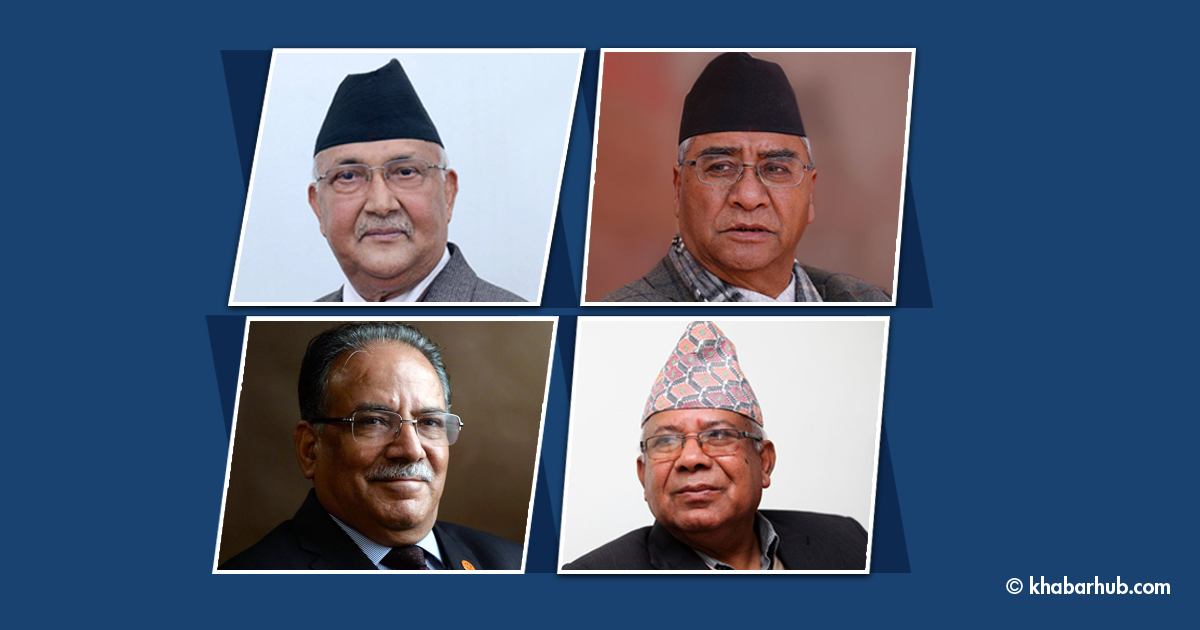With the local level election round the corner, the political parties have intensified their election campaigning across the country. While forging or not the electoral alliance for the local level became important issue among the political parties in the central discussions, the local cadres and leaders obviously remained confused to intensify electoral campaign in collaboration.
Whether to forge alliance with other political parties in the local level election became a much debated agenda in the recent central working committee meeting of the ruling Nepali Congress and it finally decided for the alliance based on the ‘local need and aspiration.’ Not only about the electoral alliance, the big political parties are proudly predicting their victory, belittling each others. They are also sharing the estimation of votes they require in particular local levels to ensure victory.
At a time when the political parties are gearing up for the elections at the foundational government of federal system, how was the performance of the local levels in the past five years in terms of governance and political cooperation that have direct impact on the public service delivery and development activities is a pressing and pertinent issue to discuss and analyze.
The discussion and observation on the past five years’ activities of the local level helps create informed citizenry, which is essential pillar of good governance, and the good governance the prerequisite to functional democracy. Similarly, the functional, effective, and inclusive democracy is the one we, Nepalis, have been aspiring for over seven decades. The political struggles and movements launched so far brought us to the present federal democratic republic where it is natural for the Nepalis to aspire equality, justice and better service, that the previous systems failed to cater.
Going through the media, the political leaders have not tired of saying that the federalism took the ‘Singha Durbar’ to every village, meaning- the central administrative complex exercising huge financial, legal and administrative authority reached the local levels with devolution of authority in the wake of changed system- from unitary to federalism. There are 753 local levels, seven provinces and a central federal government with clear demarcation of rights and authorities.
As the first five year term of the local government is expiring soon, were the local levels able to deliver what they had promised before the people? Did they get cooperation by the political parties? Did the central and provincial governments extended support to make local level effective?
It was hugely reported in the media that most of the local levels spent huge chunk of budget in road construction in the initial years. The local levels went in competition to build roads. They built roads and opened tracks in a haphazard manner. No proper plan, no survey but roaring dozers continued hitting hillocks and filling gullies. Not only that, some mayors, and chairpersons even went on fighting over their rights; some transferred school teachers and so on. Corruption thrived. These statements were finely reinforced by the reports of the Commission for Investigation of Abuse of Authority (CIAA), Office of the Auditor General (OAG) and other organizations like Transparency International.
It is however unwise to generalize that bad governance plagued all local levels. Former Secretary of Nepal government, Gopinath Mainali, views blaming local levels that they failed in past five years is unjust. “Many local levels have fared very well and acted wonderfully despite limited resources and strength. They have built foundation for good governance. The activities conducted by some local levels are worth-imitating by others,” he observed, adding that in the face of COVID-19, the establishment of holding centres, isolation and quarantine management at local levels were exemplary. They at least gave people the sense that there was government at their door step, he added.
Asked to list some local levels that performed well in terms of good governance with transparency in financial management, Mainali shared, “Belaka Municipality of Udayapur, Bagmati Municipality of Sarlahi, Panchkhal Municipality of Kavre, Nilkanth Municipality of Dhading, Waling Municipality of Syangja, and Tilottama Municipality of Rupandehi are some local levels performing effectively.”
He rather blames the central government for not making required laws for the local levels to function timely and effectively. “The federal government must have built foundation for employee management for the local levels on time, but it failed. Basic laws to run government at local levels were not made on time which hampered the service delivery and development works,” he emphasized.
These past five years were foundational time for all layers of the government in terms of implementing federalism in Nepal. As the political parties are gearing up for the second round of election in the local levels, they need to pay heed to the necessary laws for local levels and cooperation the foundational governments want. In the name of cooperation, undue interference by the political parties is again detrimental. The recommendation by the experts should not be ignored.
Although political parties are the crucial actors in the frontline of a democratic system, the role of bureaucracy, the permanent government, is equally important to advance the system. Adequate employees at local levels and their capacity building are essential. Similarly, the knowledge of constitution, federalism and governance among people’s representatives and general people are necessary contribution to make federalism success. Importantly, where are we in the shared responsibility of making local governance meaningful?









Comment